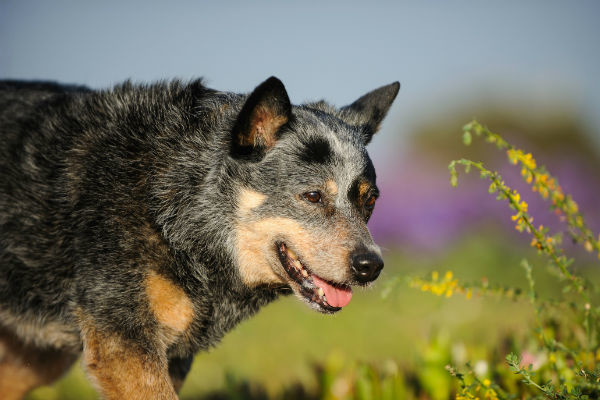Senior dogs look and behave differently than they did in their younger years. They might become gray around the muzzle, be slower to get up and lie down, or sleep more than they used to. Some of these changes are due to symptoms of physical conditions, but there may be cognitive issues, as well. For example, if your dog no longer comes when you call him, it could be a sign of hearing loss, or it could be that he no longer understands what you are asking of him. Dr. Jerry Klein, Chief Veterinary Officer for the American Kennel Club, explains, “Just like with people, older dogs can show signs of age-related cognitive decline.”
Age-Related Cognitive Decline
There are many ways that age-related cognitive decline could affect a dog’s behavior. For example, your dog might take longer to learn new things, or his short-term memory might suffer. According to Dr. Klein, one symptom to look for is a change in personality, such as becoming grouchy or aggressive or perhaps an increased need for attention. Also look for forgetful behavior, for example, your dog forgets what direction a door opens, or he goes in a different direction from usual on a walk. Also, Dr. Klein says, “They may not respond to commands as they had in their younger years. And they may exhibit changes in their housebreaking habits.”

These symptoms may be a normal part of the aging process, or they could represent a more serious condition, cognitive dysfunction syndrome (CDS). CDS is basically the canine version of Alzheimer’s disease. Dr. Klein advises that the behaviors represented by the acronym DISHAA “may be a way for owners to try distinguishing normal aging changes and signs related to cognitive dysfunction syndrome.”
- Disorientation
- Interactions (altered) with family members or other pets
- Sleep-wake cycle changes
- House soiling
- Activity level changes
- Anxiety
CDS is more common than you might think, and it can have a significant impact on your dog. That is why Dr. Klein says, “Any time an animal shows noticeable changes to his personality or behavior, he should be checked by the veterinarian to make certain that there is not an underlying health problem causing the change.” If other health issues are ruled out, and CDS is suspected, selegiline is a medication approved for the treatment of CDS. Additionally, anti-anxiety medications or the dog appeasing pheromone (DAP) can be helpful for easing the anxiety that often accompanies this condition.
Physical and Mental Exercise
Whether your dog is showing signs of CDS, simply exhibiting regular age-related cognitive decline, or you want to hold off symptoms for as long as possible, there are some ways you can help. One method is to provide physical exercise. Dr. Klein reminds his patients that, “All dogs, no matter their age, should have regular exercise. It helps with their physical and mental health.” Whether it’s a gentle walk or a round of fetch, exercise enriches your dog’s life experience, which is good for his brain. Of course, the type of activity you provide should be appropriate for your dog’s age, health, and cognitive function.
Another critical consideration is adding mental exercise to your dog’s routine. According to Dr. Klein, “Just like with people, mental stimulation can help slow cognitive decline in an animal. It’s best to provide your dog with mental stimulation in the form of walks, games, puzzles, and playtime.” Some ways to provide enrichment include starting a new training program with your senior dog, rotating his toys, providing puzzle toys for him to play with, or playing games, such as hide-and-seek.

Nutrition
Nutrition is another essential component of managing the cognitive decline in your senior dog. For example, studies have shown a combination of behavioral enrichment with a diet high in antioxidants can lead to an improvement in cognition and memory in older dogs. However, Dr. Klein cautions, “Pet owners should always consult with their veterinarian to determine the best diet for their pet.” Consider asking about treats and foods explicitly formulated for senior canines.
Putting It All Together
Combining all of these management strategies — diet, physical exercise, and behavioral enrichment — is likely to provide the best results. Also, Dr. Klein suggests “Keeping a dog on a set schedule, and a routine can also help minimize problems and make a dog more comfortable and confident.” Taking the time to feed your dog correctly and to interact with him in age-appropriate active and mentally challenging ways will benefit both of you. It will help keep his mind functioning at its best for as long as possible and will provide both of you with fun and companionship throughout your dog’s senior years.


